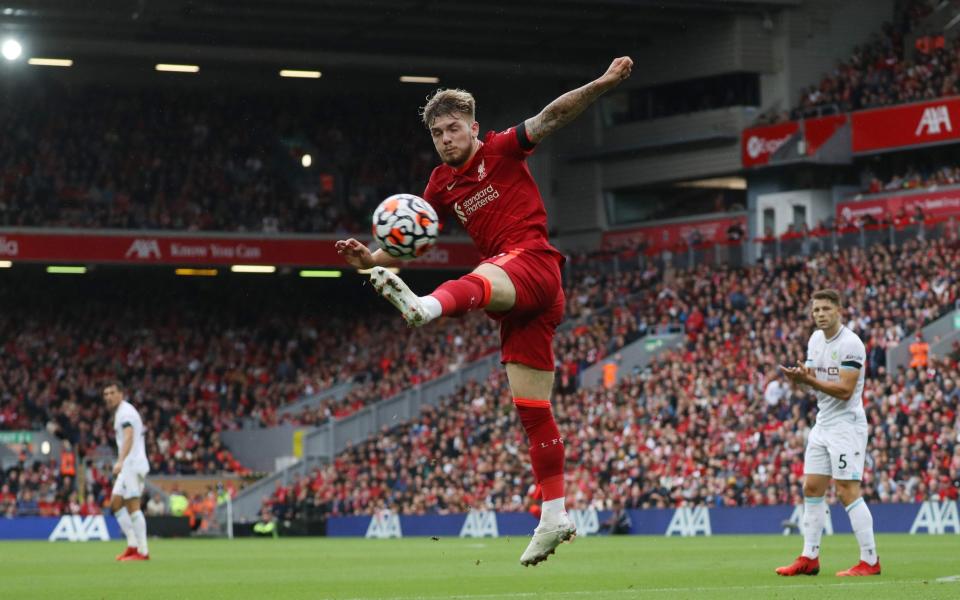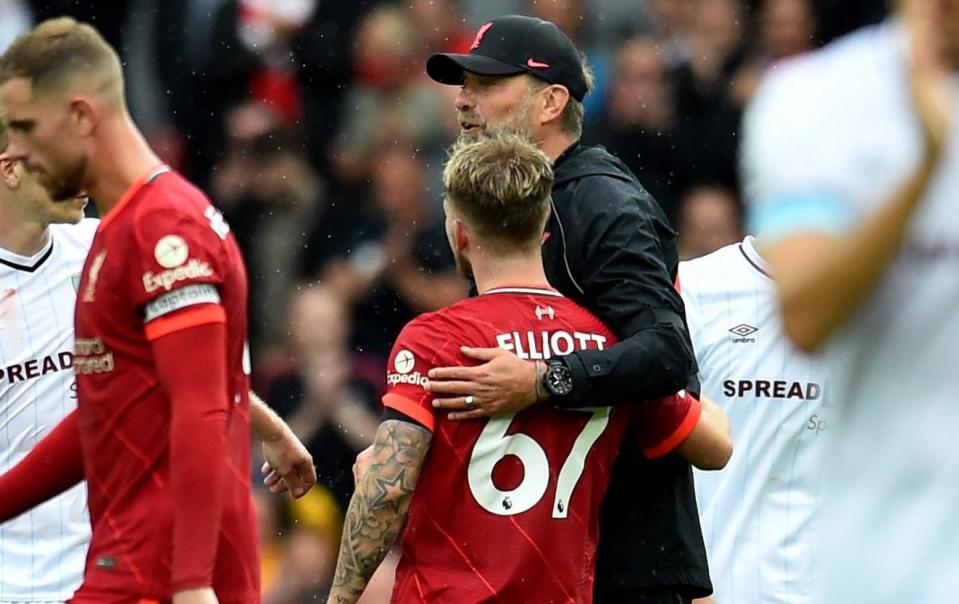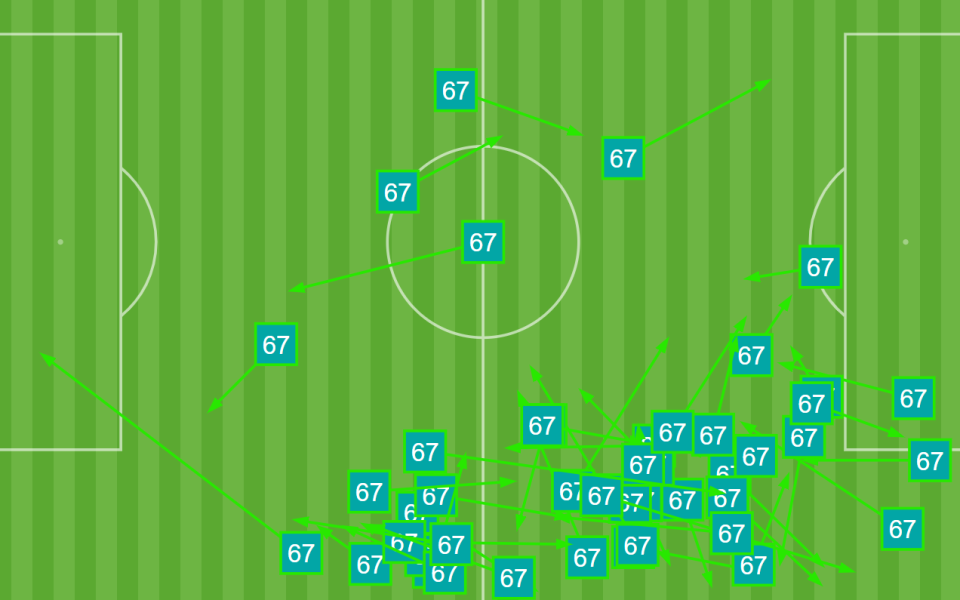Why Harvey Elliott could be the player to fill Liverpool's Georginio Wijnaldum void

It’s a measure of Liverpool’s serene start to the new Premier League season that the club’s hierarchy is yet to face what might be called ‘the Georginio Wijnaldum question’.
One might have imagined this to have reared its head at least once in the opening fortnight, apprehensive supporters asking why the void in Liverpool’s central midfield was not filled following Wijnaldum’s contentious departure to Paris Saint Germain.
When Liverpool lined up against Norwich City without Jordan Henderson and Fabinho, and then called up an 18-year-old for Saturday’s visit of Burnley, you can imagine thoughts were drifting towards the much-admired Dutchman.
To lose an established central midfielder on a free transfer might have been considered careless; to fail to replace him with a player of comparable pedigree looked negligent.
Instead, laments for Wijnaldum’s absence have been drowned out by the appreciation for teenager Harvey Elliott after the opening bars of what looks destined to be a virtuosic Anfield career.
Elliott is not a direct midfield replacement for Wijnaldum, his profile significantly different, playing higher up the pitch and more likely to pick a pass for overlapping full-backs than slot into a defensive role to cover their runs.
And anyone expecting an 18-year-old to feature in all but eleven of Liverpool’s 190 Premier League games - as the Holland international did over his five year spell - is being unreasonably ambitious.
But should Elliott’s promising introduction prove a taste of what is to come, Liverpool’s recruiters can expect more credit and vindication.
Elliott is a product of that much referenced footballing enterprise which is lauded in principle, and then often ridiculed when it comes at the expense of massive transfer spending.
Behold the visible embodiment of ‘long-term planning’.
Liverpool signed Elliott from Fulham when he was 16-years-old, helped by a combination of their scouting and the fact the youngster and his dad were fanatical Kop fans who followed the club around Europe (including the 2018 Champions League final in Kiev).

Shortly before his son signed, Elliott’s father, Scott, was identified among those travelling supporters celebrating in the Allianz Arena when Liverpool defeated Bayern Munich en route to winning the 2019 Champions League. Elliott’s arrival in a deal which may eventually rise to £4.3 million was officially confirmed that July.
Since then, Klopp has been nurturing Elliott in readiness for Saturday’s full Premier League debut, transforming him from a wide attacker to a deeper, more versatile midfielder.
Rather than Wijnaldum, Elliott’s role put one in mind of the man who left 12 months earlier, Adam Lallana. Lallana was at his most effective at the start of Klopp’s reign, linking the midfield and front three with penetrating passing, a first touch that can bring a crowd to its feet, and an all-energy style which suffocated defenders who may have escaped the high press of Liverpool’s front three only to be smothered by the advancing midfield and full-backs.
A recurring criticism of Liverpool’s midfield trio since Lallana lost his regular starting place due to injury, and Philippe Coutinho joined Barcelona, is they all brought similar qualities, more adept at dominating and controlling than creating. Whether or not Klopp prefers Elliott, Alex Oxlade-Chamberlain, Thiago Alcantara or Curtis Jones, the signs are that his midfield unit is evolving again.
Elliot was responsible for more forward passes than any Liverpool player at the weekend, denied the sweetest of assists thanks to a perfectly-weighted pass when Mohamed Salah narrowly ventured into an offside position in the first half, but enjoying a critical role in the game’s second on 69 minutes when receiving Virgil Van Dijk’s diagonal ball and linking with Trent Alexander-Arnold to tee up Sadio Mane.
Harvey Elliott's completed passes vs Burnley

Elliott grew into the game. There were tricky moments, such as losing out to a thunderous 50-50 challenge to Josh Brownhill when on the edge of his own penalty area, which led directly to Dwight McNeil forcing Alisson Becker into a save. There was one occasion when a clever six yard pass to a teammate diced with danger, inviting an interception deep in the Liverpool half.
This can be attributed to inexperience, and was overshadowed by the more eye-catching qualities which ensured Elliott was such a menace he was the most fouled Liverpool player.
The message from Klopp to Elliott at full-time may be that having emerged unscathed against Sean Dyche’s side - arguably the most physically challenging team in the Premier League - everyone else might seem like lightweights.
When Klopp suggested earlier this month he had already signed a ‘new midfielder’ following Elliott’s return from a loan spell at Blackburn Rovers - and the penning of an extended deal - the cliched nature of the observation prompted more rolling of eyes than expectation the teenager was ready to be immediately thrust into a title challenging team.
At such an early stage, it would be premature, dangerous and - to be blunt - plain wrong to portray Elliott as the natural, like-for-like successor to Wijnaldum.
But his emergence does demonstrate to critics of Liverpool’s transfer policy that perhaps, just perhaps, the club knew what was coming when terminating a contract negotiation for a midfield veteran and successfully concluding another for a precocious teenager.

 Yahoo Sport
Yahoo Sport 





































